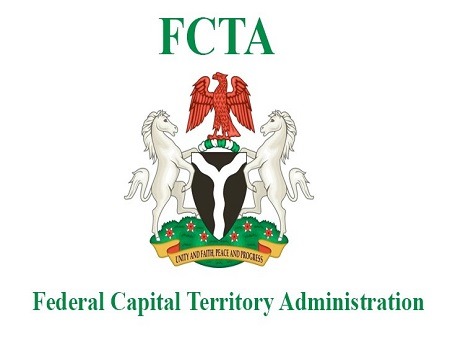Onu Okorie
Representatives of the United Nations Agencies, development partners, Directors and Heads of Departments, and Agencies, and other key stakeholders from the Federal Capital Territory Administration, (FCTA) converged recently in Abuja, to brainstorm and develop the Administration’s 2022 Strategic Action Plan (SAP).
The joint venture development template tagged, ‘UNSDPF 2022’ when completed, is expected to provide a comprehensive blueprint for the design and implementation of a two-year Masterplan for repositioning the FCTA towards optimum service delivery to FCT residents through accelerated and sustainable development and strategic partnership model.
Declaring the workshop open, the Mandate Secretary, Economic Planning, Revenue Generation & Public-Private Partnership Secretariat, Hon. Lukman Agboola Dabiri, who was represented by the Deputy Director, International Co-operation, Mrs. Celina Gaza Oluwafemi, said the key objective of the two-day workshop was “to reposition the FCT Administration towards effective and efficient service delivery to FCT residents, and sustainable development of the FCT in line with the UN Sustainable Development Partnership Framework (UNSDPF).” In tune with this innovative plan of action, a Medium-Term Co-operation Framework (MCF) as well as the 2022 Annual Work Plan (AWP) was jointly agreed upon with a strong commitment from the UN System in Nigeria to “harness its strengths and potentials in policy and technical advice, capacity development and intermediation between partners, to remedy compelling socio-economic and political challenges facing the FCT Administration.
The forum which brought together representatives of the various UN Agencies in the FCT (UNDP, UNESCO, UNICEF, UNIDO, UNHCR, UNAIDS, FAO, WHO, and UN Population Fund) to brainstorm with the relevant Secretariats, Departments and Agencies (SDAs) under the FCT Administration, carried out painstaking reviews of the 2021 UN Sustainable Development Partnership Framework (UNSDPF) (2018-2022), with a view to developing an implementable UNSDPF Work Plan and Budget for the relevant sectors in the FCT for the year, 2022.
The UN Sustainable Development Partnership Framework (UNSDPF) (2018-2022), is a five-year master plan outlining a strategic direction and results expected from the existing co-operation and understanding between the Federal Republic of Nigeria and the UN System in Nigeria. In pursuance of this strategic partnership goal, the FCT Administration is committed to contributing its counterpart funds and assistance towards actualizing the outputs set out in the MCF and the 2022 AWP.
The gathering also marks the climax of a series of annual brainstorming sessions involving the FCT Administration and the UN Systems and other strategic stakeholders, in charting the course for sustainable transformation of the FCT into a smart-city status comparable to the best in the world. In line with the modalities of the programme, each of the 36 states of the Federation and the FCT, are expected to organize review meetings to assess the progress made in the previous year(s), evaluate the results achieved, identify challenges and proffer possible solutions from the lessons learnt in order to develop the 2022 Annual Work Plan (AWP) for the FCT Administration.
Pursuant to the overall goal of overcoming the challenges of building an ideal, smart and sustainable Federal Capital City (FCC) in line with fast-changing global standards, the participants at the forum, initiated technical and methodological group discussions and presentations towards developing a comprehensive template for activity-focused strategic Work Plan for the FCTA. To underscore this goal, stakeholders from the EPRG&PPP Secretariat also made a presentation on the UNSDPF Process.
The UN Sustainable Development Framework (UNSDPF) provides three thematic result-areas of implementation and nine strategic outcomes. The first result-area deals with governance, human rights, peace and security; while the second result-area places emphasis on equitable quality basic services, with four basic outcomes, namely: health, nutrition & HIV/AIDS, learning & skill development, as well as water, sanitation and hygiene (WASH). Similarly, the third result area deals with sustainable, inclusive growth and development with three outcomes on diversified economic growth, population dynamics and environmental sustainability as well as food security.
Speaking on the sidelines of the event, the Deputy Director, International Co-operation Division, Economic Planning, Revenue Generation & Public-Private Partnership Secretariat, Mrs. Celina Oluwafemi, said the objective of the UNSDPF Work Plan is to “serve as a collective support and response of the UN System to the National Development Initiatives of the Federal Government towards the attainment of the Economic Recovery and Growth Plan (ERGP) and other internationally-agreed declarations”. She explained that the Framework will further promote and strengthen the existing partnership between the FCT Administration and the United Nations Agencies in Nigeria, while exiting from 2017 UNDAF III Project implementation programme.
The final document is expected to indicate the various activities to be implemented during the year, and their financial implications, while spelling out the amounts to be contributed by the various UN Agencies and the FCTA as counterpart funds. The Annual Work Plan also represents a comprehensive document that spells out detailed annual programmes and activities of the FCTA with specific key performance indicators and responsibilities of the various partners involved in the development of the FCT in accordance with the Administration’s strategic mandate, vision and mission.







